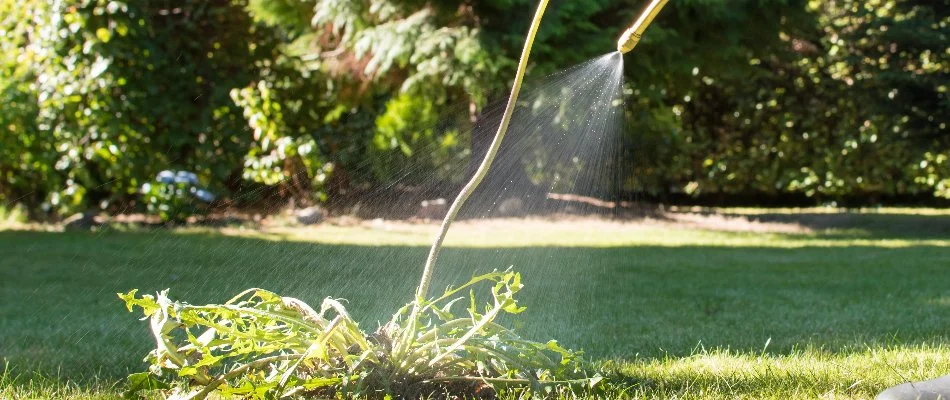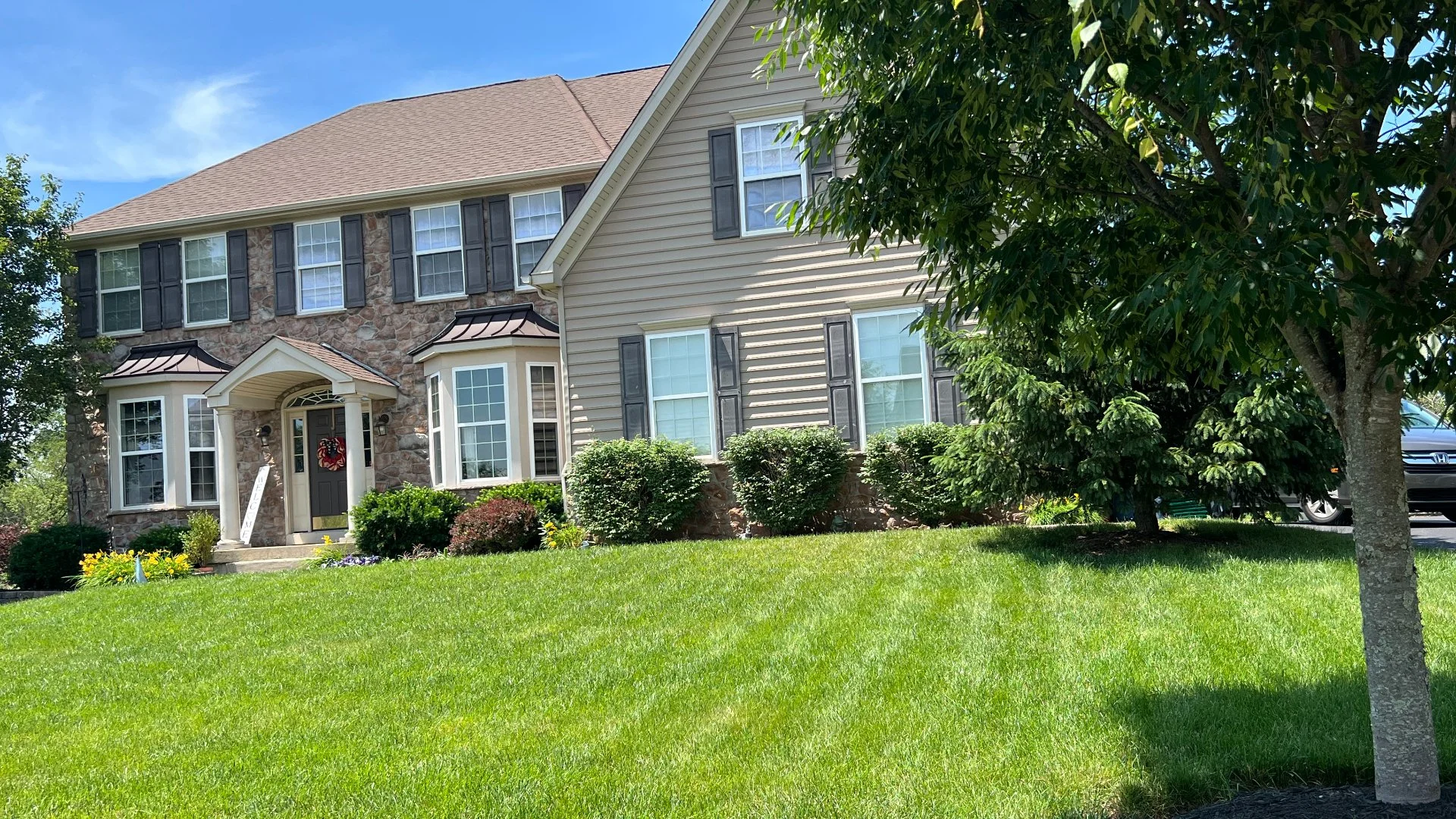If you want your lawn in Pennsylvania to start the growing season on the right foot, weeds should not be in the picture. They will steal nutrients from your grass, and the best way to keep them at bay is through weed control treatments. There are two kinds of weed control: pre- and post-emergent treatments. These two treatments should be used in the spring to effectively keep weeds from invading your lawn. Pre-emergent treatments create a barrier on your turf that prevents weeds from emerging, allowing you to stay ahead of their growth. Meanwhile, post-emergent treatments are what you need to get rid of existing weeds that are actively taking away nutrients from your grass. Both should be applied in the spring to effectively control weeds at both ends of their life cycle.
Pre-emergent weed control will help you get ahead of spring weeds.
When dealing with weeds, the best way to handle their growth is to ensure they don't sprout in the first place. That's what pre-emergent weed control treatments do! Pre-emergent weed control treatments should be applied to your lawn at the start of the spring season to get ahead of weeds that may emerge. Once applied, the product will create a protective barrier that will keep weeds from sprouting. It works by blocking newly germinated weeds from breaking through the soil surface, preventing them from getting access to sunlight and other resources they need to continue growing. However, it's important to note the timing of these treatments is crucial to their success. If the treatments aren't applied before weeds get past a certain point in their life cycle, then they won't be effective at stopping them from sprouting.
Post-emergent weed control treatments will eliminate any existing spring weeds.

Post-emergent weed control treatments target existing weeds on your lawn. Some weeds germinate in the fall and emerge in the spring, causing trouble for your grass as it starts to actively grow. You can spot-spray these weeds with post-emergent treatments, which will be absorbed into the soil and kill the weeds' roots. Using this type of treatment in the spring is essential in ensuring your grass has no competition for beneficial nutrients. For the best results, you should apply these treatments twice in the spring, once at the beginning of spring, and again toward the end of it.
Post-emergent weed control should be applied as needed throughout the year to control weed growth on your lawn.
Use Both Pre- & Post-Emergent Treatments in the Spring For Effective Weed Control
Pre- and post-emergent weed control treatments are best combined to effectively achieve a weed-free lawn in the spring season. Using pre-emergent treatments will prevent many weeds from emerging on your lawn, but they cannot tackle existing growth. Only post-emergent treatments can eliminate weeds that are already on your turf, but it's difficult to stay on top of their growth without the help of pre-emergent applications. By making pre- and post-emergent weed control treatments part of your lawn care routine, a weed-free lawn is within reach!
Call us today to enroll in our weed control service!
Here at Green Grass Lawncare, Inc., we offer a weed control service that consists of both pre- and post-emergent treatments in the spring to effectively keep your turf free of weeds. Our program includes more than just weed control; it also involves lawn fertilization, insect control, and calcium and magnesium supplements. Common weeds that our weed control treatments target include red deadnettle, black medic, hairy bittercress, and more. We offer this service to commercial and residential properties, as well as HOAs, in Telford, Souderton, Harleysville, Quakertown, Perkasie, Doylestown, and surrounding communities in Pennsylvania. Call our team today at (215) 723-1034 to sign up!



Comments (0)
Thanks for your comment!
Thanks for your feedback! Your comments have been successfully submitted! Please note, all comments require admin approval prior to display.
Error submitting comment!
There is a problem with your comment, please see below and try again.